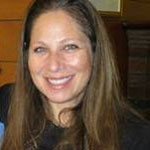Happiness Is Not a Passive Endeavor, Part III
Posted on November 25, 2014 by Lauri Ringer
In Part II of this article, I shared with you the first intrinsic intentional activity (personal growth) to power your Happiness GPS. This article expands on the other two activities that are integral to your happiness — relationships and community. Remember, happiness is not a passive endeavor. With intrinsic intentional activities you have the power to change your brain and fuel your Happiness GPS.
Relationships
Social bonding is programmed into our species. When you interact with another person, there is a measurable increase in your brain’s feel-good drug, dopamine. Thus, it should come as no surprise that 100 percent of happy people enjoy close relationships.
As with exercise, it’s important to make time for social interactions. Because of the Internet, it’s easier than ever for people to connect. Email, Skype, and online communities such as Meetup, Facebook, and Twitter allow you to connect and reconnect, but it’s up to you to take the initiative.
Reach out to people with whom you’ve lost touch, have a shared interest, or who are friends of friends whom who you might otherwise not meet. A friend of mine just did this and ended up marrying a woman who was a friend of a friend on Facebook!
I was recently made aware of a group of twelve men who grew up in the same neighborhood and call themselves The Posse. Over the years they’ve gone their individual ways (moving to other parts of the country, having families, etc.), but still stay connected through emails, phone calls, and occasional golfing trips. Their life-long friendship stimulates their dopamine production and, hence, the joy they find in their connection.
Of course, not everyone wants to revisit the posse of his past, which is okay. Your brain loves novelty, so go ahead and forge new relationships. With the Internet, it’s easier than ever to find like-minded people with whom you can build relationships.
Another good intentional choice includes a combination of old and new relationships. Reconnect with people from your past while at the same time forging new friendships. The key is to force yourself to attend activities where you are likely to meet new people.
Given that all happy people have close relationships, it obviously makes sense to embrace this intentional activity. You can be absolutely certain that your brain will reward you with a healthy dose of dopamine when you connect with other human beings.
Community
International data confirms that the happiest people have a sense of community, of something greater than themselves. Even though a community is a group, a feeling of community is intrinsic to each individual member.
My personal journey with community started with Superstorm Sandy. The storm’s devastation motivated me to train as a CERT (Community Emergency Response Team member). CERT is a FEMA program that educates people about basic disaster response skills for hazards that may impact their part of the country.
With CERT, I learned invaluable survival skills, but there was something else I discovered: a community of like-minded people.
I also got involved in the earthquake preparedness at my son’s school and participated in a statewide earthquake drill known as the Great California ShakeOut. As a mother of a student, I was both impressed and relieved. And as a member of the community, I was moved emotionally — probably because of an increase in dopamine from feeling a connection to something larger than myself.
Which leads to the subject of spirituality. Neuroscientists pinpoint spirituality as a dopamine bonanza. Dr. Richard J. Davidson, professor of psychology and psychiatry at the University of Wisconsin-Madison, studied the brain of French Buddhist monk Matthieu Ricard and found that when Ricard was in a state of spiritual meditation, the MRI images of his brain lit up like a firestorm.
But you don’t have to be a Buddhist monk to experience the dopamine rush of spirituality. It may be that a certain organized religion satisfies your spiritual quest. The programs, services, and activities in organized religion offer opportunities for personal growth, relationships, and community. With organized religion, you can connect with a force greater than yourself as well as gain a community for fellowship.
Spiritualty can also be found in Nature. You can probably recall a feeling of something greater than yourself when you’ve witnessed a magnificent sunset, felt a soft breeze against your face, or listened to the soothing sound of rain drops. Experiences such as these cause your brain to elicit dopamine, which in turn results in a deep sense of happiness.
Understanding the science of happiness is supremely important, and I hope some of my suggestions have sparked a few good ideas about how you can increase the power of your Happiness GPS. The trick is to stay open to new experiences, welcome novelty into your life, and make a commitment to intrinsic intentional activities such as personal growth, relationships, and community.
One thing is certain: Your brain, your body, and your spirit are certain to benefit greatly from them.










